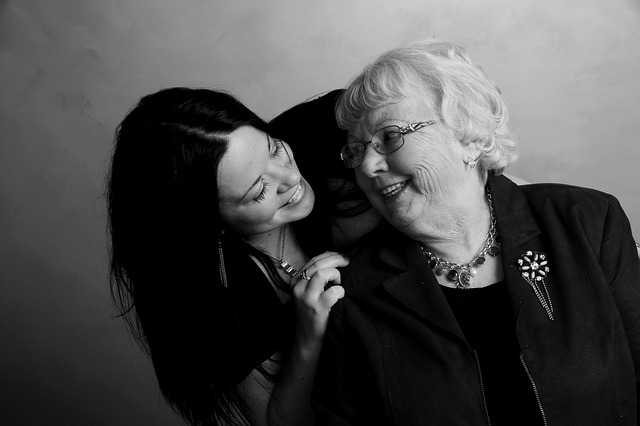- Calls to this hotline are currently being directed to Within Health, Fay or Eating Disorder Solutions
- Representatives are standing by 24/7 to help answer your questions
- All calls are confidential and HIPAA compliant
- There is no obligation or cost to call
- Eating Disorder Hope does not receive any commissions or fees dependent upon which provider you select
- Additional treatment providers are located on our directory or samhsa.gov
How Extended Family Members Can Be Part of the Family Support System

Contributor: Crystal Karges, MS, RDN, IBCLC, Special Projects Coordinator at Eating Disorder Hope/Addiction Hope
Having a loved one we care for that is dealing with an eating disorder is always concerning, regardless of what our relationship might be with this person.
Whether you are a direct family member, extended family member or not even blood related, the fact that you are concerned about your loved one and desire to seem them get well means you care deeply. As someone who may be more on the outskirts of a core family unit, you may feel unsure as to how to support someone you care for during this difficult time.
Perhaps you have the desire to help in some way or even want to become involved in the treatment process or simply know how to best offer encouragement. Whatever your past relationship has been with this person you care for, knowing how to appropriately offer support and encouragement is likely your main priority moving forward. Because you might not be within the main family circle, you may feel uncertain about what this looks like.
Communication and Family Support
The most effective way to appropriately become involved in a loved one’s treatment for an eating disorder is to communicate directly with all those involved. Depending on the level of treatment that your loved one is in, there may be rules and regulations that should be observed, such as time to visit, length of visitation, etc.
 However, even a simple visit at the treatment center your loved one is at or a phone call letting them know you care can be powerful gestures of care during this time. Connect with those family members who are most closely involved to find out the details on how you might be able become involved during the actual course of treatment.
However, even a simple visit at the treatment center your loved one is at or a phone call letting them know you care can be powerful gestures of care during this time. Connect with those family members who are most closely involved to find out the details on how you might be able become involved during the actual course of treatment.
Educating yourself further about eating disorders is a crucial element for all family members and friends. Taking the time to do so can help you better understand what your loved one might be going through as well as appropriate ways to offer your support.
Many organizations offer free resources for this purpose in addition to Eating Disorder Hope, such as the National Eating Disorder Association, F.E.A.S.T.-Ed, the Academy of Eating Disorders, and more. Becoming involved in small ways can mean the world to your loved one, as can your desire to learn more about what they are dealing with.
Community Discussion – Share your thoughts here!
What are some of the ways that extended family members can become involved with loved ones in treatment for an eating disorder?
 About the Author: Crystal is a Masters-level Registered Dietitian Nutritionist (RDN) with a specialty focus in eating disorders, maternal/child health and wellness, and intuitive eating. Combining clinical experience with a love of social media and writing, Crystal serves as the Special Projects Coordinator for Eating Disorder Hope/Addiction Hope, where her passion to help others find recovery and healing is integrated into each part of her work.
About the Author: Crystal is a Masters-level Registered Dietitian Nutritionist (RDN) with a specialty focus in eating disorders, maternal/child health and wellness, and intuitive eating. Combining clinical experience with a love of social media and writing, Crystal serves as the Special Projects Coordinator for Eating Disorder Hope/Addiction Hope, where her passion to help others find recovery and healing is integrated into each part of her work.
As a Certified Intuitive Eating Counselor, Crystal has dedicated her career to helping others establish a healthy relationship with food and body through her work with EDH/AH and nutrition private practice.
The opinions and views of our guest contributors are shared to provide a broad perspective of eating disorders. These are not necessarily the views of Eating Disorder Hope, but an effort to offer discussion of various issues by different concerned individuals.
We at Eating Disorder Hope understand that eating disorders result from a combination of environmental and genetic factors. If you or a loved one are suffering from an eating disorder, please know that there is hope for you, and seek immediate professional help.
Last Updated & Reviewed By: Jacquelyn Ekern, MS, LPC on June 28, 2016
Published on EatingDisorderHope.com

The EatingDisorderHope.com editorial team comprises experienced writers, editors, and medical reviewers specializing in eating disorders, treatment, and mental and behavioral health.

